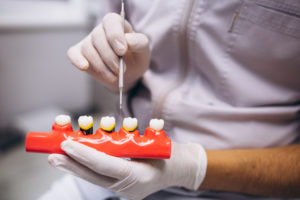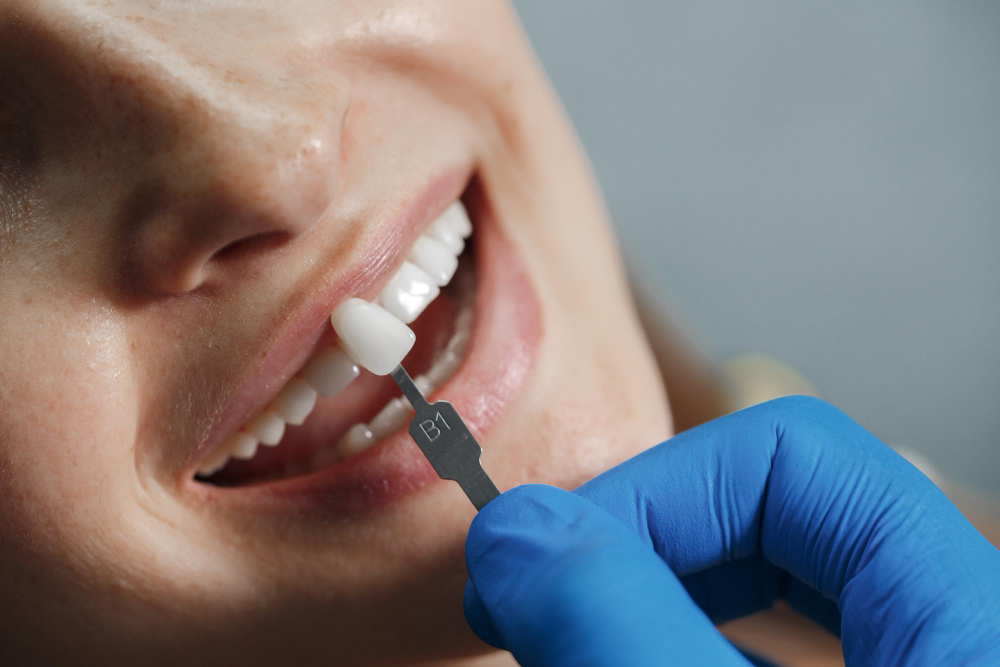Over time, your original teeth may experience wear and tear and become damaged. The damage may be of various types, including injury, tooth decay, chipping of teeth, and so forth. Any of these problems, however, can greatly affect how your teeth look and even change their size and appearance.
In such cases, a dental crown provides an ideal solution for all tooth damage issues. If you are wondering what is a crown, you are at the right place. In this article, we will explore dental crowns and the things to consider before getting one.
What is a Crown?
Dental crowns are an artificial tooth restoration. This cap-like structure mostly replaces a broken or severely damaged tooth or protects a weak tooth from further damage. In some cases, a crowns may also be use alongside a dental bridge to replace missing teeth.
Why Do You Need a Dental Crown?
A dental crown is a type of restoration that covers the entire visible section of a tooth above the gum line. It restores the tooth’s normal function and appearance while protecting it from further damage.
Your dentist will commonly recommend a dental crowns for the following reasons:
- Protect your tooth from further decay or fracture.
- Cover and support your tooth with a large filling.
- Restore your tooth’s function and appearance.
- Enhance the appearance of misshapen or discolored teeth.
- Strengthen a tooth that has already been damage by decay, infection, or trauma.
- Support a dental implant treatment.
What are the Different Types of Dental Crowns?
Dental crowns are of various types. The overall dental crowns cost also depends on the type of crown and the severity of your condition. Dentists commonly recommend three types of dental crowns:
Prefabricated Crown
As the name suggests, a prefabricated crowns is made in a laboratory and ready for use. It may be made from porcelain, gold, or other metals.

Cast Metal Crown
A cast metal crown is made by taking an impression of your teeth and casting the metal around it in a laboratory. It can also be made from different types of metals, including gold, titanium, or platinum.
All Ceramic Crown
As the name suggests, these crowns are made of ceramic and also produce in a laboratory.
Often, porcelain crowns are the most popular as these can be match to the color of your teeth. Gold crowns are sturdier than porcelain and may be better for people with a strong bite. On the contrary, a ceramic crown may be suitable for people with metal allergies. Depending on your condition, your dentist will select the crown which suits you the best.
What is the Dental Crown Procedure?
Now, what is a crown’s typical application? It involves placing a custom-made, tooth-shaped cap over a damaged or decayed tooth. The cap, thus placed, restores and strengthens the tooth’s function.
The entire procedure can be complete usually in two visits:
First Visit
On the preliminary visit, your dentist will remove any damage and shape your teeth for the new crown. Once done, the dentist will take an impression and send it to a dental laboratory where a custom crown will be made. In the meantime, the dentist may temporarily cover the tooth with filling material or composite resin to protect it from further damage. Once the dental crown is fabricate in the laboratory and sent back to the dentist, your dentist will call you for a second visit.

Second Visit
On the second visit, your dentist will fix and cement the new crown with a unique dental adhesive. To begin, the dentist will remove the temporary crown and check the fitting and colour of the permanent one. Further, a numbing agent may be use to numb the affected tooth and cement the new crown onto it.
What are Dental Crown Complications?
Although dental crowns are safe, you may experience certain complications, these include:
- You may experience a little discomfort or sensitivity once the anesthesia wears off. If the sensitivity does not go on its own, make sure to consult your dentist.
- Some porcelain crowns tend to chip. While small chipping can be fix with a resin, extensive chipping cannot and may require crown replacement.
- If the cement holding the crown is wash out, it may cause the crown to come loose and fall off.
- Although rare, some people may also experience an allergy to the crown material.
In case, you experience any of the above symptoms, visit your dentist immediately.
Conclusion
If you’ve suffered damage to your teeth, it is essential to understand what is a crown’s purpose. An often ideal solution to tooth damage, the simple cap-like structure resembles your natural tooth color and provides an excellent replacement. Although dental crowns problems are rare, visit a dentist immediately if you experience loosening of the crown or sudden pain.
Get Your Dental Crowns Fix at Hopkins Family Dentistry!
Whether you are experiencing problems with your teeth or dental crowns, our expert dentists at Hopkins Family Dentistry are here to resolve all your dental issues.
You can contact us at (952) 935-2121 or schedule an appointment with us here.
Alternatively, you can visit us at 1919 Main street, Hopkins MN 55343.







